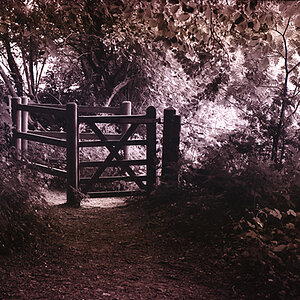goodeye
TPF Noob!
- Joined
- Mar 21, 2017
- Messages
- 1
- Reaction score
- 0
- Can others edit my Photos
- Photos OK to edit
Hello, first I would like to mention english is not my first language so please excuse any grammar mistakes.
I am an aspiring photographer working and learning everyday to be better to start my photography business. First time I held my camera (D5200) and took a few pictures and looked at them and Inoticed that the pictures looked decent, kinda like the pictures I see online, so my reaction was "wow this doesn't seem to be as hard as I thought"; but then, when I see the work of local freelance photographers in my city (which is alot, it is really competitive) I get crushed and think how long will it take me to reach that level.
I want to publish my photos on social media to attract local businesses to work with me (as a side business), but not until my work is impressive enough so I have alot of learning to do. I am very inspired by magazines and photos from clothing brands, obviously since they put it out there in their websites or their pages and I assume that they are very meticulous of the end photos.
The reasons why I look at those two businesses, is because the average person is always impressed by brand photos and magazines, plus I assume the brands have really high standards of what is acceptable. that is what I'm working on, I want to give my clients that magazine look, that "mysterious yet inspiring and wonderful" cliche photos that you see everyday in magazine ads or billboards. so I look at those photos and wonder how do they get these results ? what do they do and what's their gear kit ? do I have to buy the most expenive camera to get the same results as them ?
Here are some pictures so you can see what I'm talking about:
These are some very nice pictures from louis vuitton:
Louis Vuitton America’s Cup Collection | LOUIS VUITTON ®
Louis Vuitton America’s Cup Collection | LOUIS VUITTON ®
Louis Vuitton America’s Cup Collection | LOUIS VUITTON ®
here are some coffee pictures:
This is from an article from business insider:
http://static4.businessinsider.com/...he-best-coffee-makers-out-there-right-now.jpg (article link: The best coffee makers out there right now)
Home background picture
Gift Boxes | Café de la Paix stunning pictures from a cafe website
GQ magazine instagram: GQ (@gq) • Instagram photos and videos
issue for some ideas: GQ Magazine January 2016 : Free Download & Streaming : Internet Archive
I am an aspiring photographer working and learning everyday to be better to start my photography business. First time I held my camera (D5200) and took a few pictures and looked at them and Inoticed that the pictures looked decent, kinda like the pictures I see online, so my reaction was "wow this doesn't seem to be as hard as I thought"; but then, when I see the work of local freelance photographers in my city (which is alot, it is really competitive) I get crushed and think how long will it take me to reach that level.
I want to publish my photos on social media to attract local businesses to work with me (as a side business), but not until my work is impressive enough so I have alot of learning to do. I am very inspired by magazines and photos from clothing brands, obviously since they put it out there in their websites or their pages and I assume that they are very meticulous of the end photos.
The reasons why I look at those two businesses, is because the average person is always impressed by brand photos and magazines, plus I assume the brands have really high standards of what is acceptable. that is what I'm working on, I want to give my clients that magazine look, that "mysterious yet inspiring and wonderful" cliche photos that you see everyday in magazine ads or billboards. so I look at those photos and wonder how do they get these results ? what do they do and what's their gear kit ? do I have to buy the most expenive camera to get the same results as them ?
Here are some pictures so you can see what I'm talking about:
These are some very nice pictures from louis vuitton:
Louis Vuitton America’s Cup Collection | LOUIS VUITTON ®
Louis Vuitton America’s Cup Collection | LOUIS VUITTON ®
Louis Vuitton America’s Cup Collection | LOUIS VUITTON ®
here are some coffee pictures:
This is from an article from business insider:
http://static4.businessinsider.com/...he-best-coffee-makers-out-there-right-now.jpg (article link: The best coffee makers out there right now)
Home background picture
Gift Boxes | Café de la Paix stunning pictures from a cafe website
GQ magazine instagram: GQ (@gq) • Instagram photos and videos
issue for some ideas: GQ Magazine January 2016 : Free Download & Streaming : Internet Archive
Last edited:









![[No title]](/data/xfmg/thumbnail/35/35879-b9a5a75c88f724f404f976b0c0e67dbd.jpg?1619737207)

![[No title]](/data/xfmg/thumbnail/37/37605-90c8efaef5b7d1f52d4bf8e7dfd33673.jpg?1619738148)

